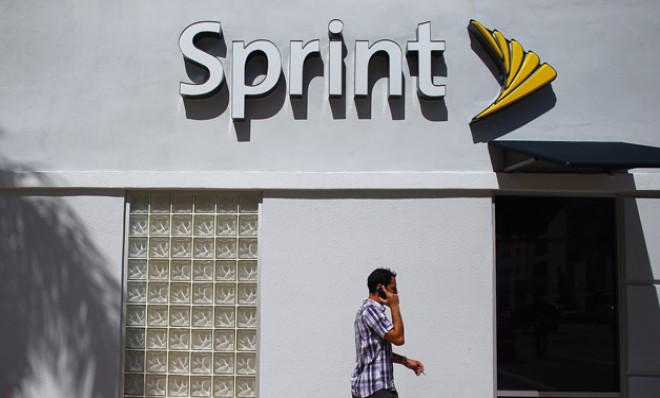Why Dish Network wants to buy Sprint
The satellite TV provider is now locked in a $26 billion fight with Japan's Softbank for America's No. 3 cell phone company


It's not much of a mystery why Japanese telecom Softbank wants to buy a 70 percent stake in Sprint Nextel, the No. 3 U.S. cell phone provider. After all, the U.S. market is huge, and Japan's is saturated. And from Sprint's point of view, the potential partnership is all about keeping up with America's dominant top two wireless companies, Verizon and AT&T.
It's less immediately obvious why Dish Networks, the satellite TV pioneer, went public today with a $25.5 billion offer for Sprint, upping Softbank's pending bid by 13 percent, according to Dish.
Regardless of motive, the battle for Sprint now "pits two of the world's hardest-to-read telecom entrepreneurs against each other," say Shalini Ramachandran and Anton Troianovski in The Wall Street Journal, referring to Dish Chairman Charles Ergen and Softbank's billionaire CEO Masayoshi Son. But Ergen has actually been pretty public about his desire to scoop up a cell phone company — even as he's kept the wireless industry guessing about which company he would try to buy or whether he'd build his own wireless network.
The Week
Escape your echo chamber. Get the facts behind the news, plus analysis from multiple perspectives.

Sign up for The Week's Free Newsletters
From our morning news briefing to a weekly Good News Newsletter, get the best of The Week delivered directly to your inbox.
From our morning news briefing to a weekly Good News Newsletter, get the best of The Week delivered directly to your inbox.
The unsolicited offer is Mr. Ergen's most audacious attempt yet to move from the slow-growing pay-television business into the fast-evolving wireless industry. The satellite TV pioneer eased into the industry by amassing spectrum and winning approval from regulators last year to use it to offer land-based mobile-phone service. But he lacks much of the rest of the operation, including a cellphone network, which would be costly and time-consuming to build. Combining his company with Sprint would allow Dish to offer video, high-speed Internet and voice service across the country in one package whether people are at home or out and about. [Wall Street Journal]
In other words, it's largely about bundling services, like AT&T and Verizon, but also like TV rivals like Time Warner and Comcast. And Ergen is so set on Sprint he says he's willing to pay Softbank the $600 million breakup fee that's part of the pending deal. What makes Sprint so appealing, aside from its established foothold in the U.S. market (56 million subscribers and counting), is its ownership of Clearwire — a company Dish also has an unsolicited bid out for. Clearwire has access to a broad slice of wireless spectrum, which Dish could use to provide fast wireless internet in urban areas.
It's now up to Sprint to decide. Shareholders will surely be tempted by Dish's higher offer, but Softbank would keep Sprint a separate company while Dish would fold the cell phone provider into its brand. And Softbank can always come back with a higher offer, meeting or matching Dish's.
Either way, the upshot for Sprint Nextel is pretty good. As Ergen says, the company suddenly has two suitors and two viable options — a nice turn of events for a wireless provider that hasn't been the belle of the ball in an awfully long time.
A free daily email with the biggest news stories of the day – and the best features from TheWeek.com
Peter has worked as a news and culture writer and editor at The Week since the site's launch in 2008. He covers politics, world affairs, religion and cultural currents. His journalism career began as a copy editor at a financial newswire and has included editorial positions at The New York Times Magazine, Facts on File, and Oregon State University.
-
 Grok in the crosshairs as EU launches deepfake porn probe
Grok in the crosshairs as EU launches deepfake porn probeIN THE SPOTLIGHT The European Union has officially begun investigating Elon Musk’s proprietary AI, as regulators zero in on Grok’s porn problem and its impact continent-wide
-
 ‘But being a “hot” country does not make you a good country’
‘But being a “hot” country does not make you a good country’Instant Opinion Opinion, comment and editorials of the day
-
 Why have homicide rates reportedly plummeted in the last year?
Why have homicide rates reportedly plummeted in the last year?Today’s Big Question There could be more to the issue than politics
